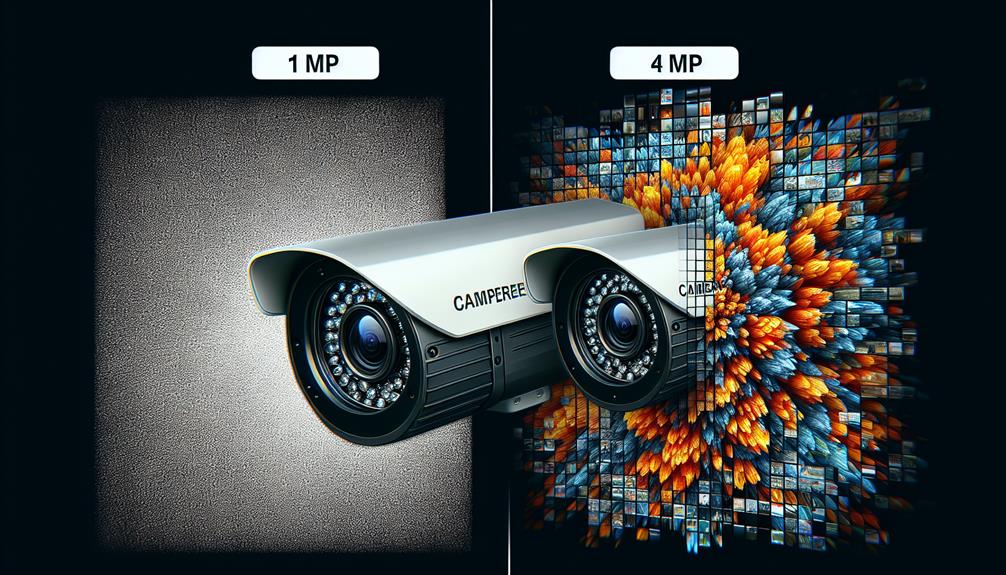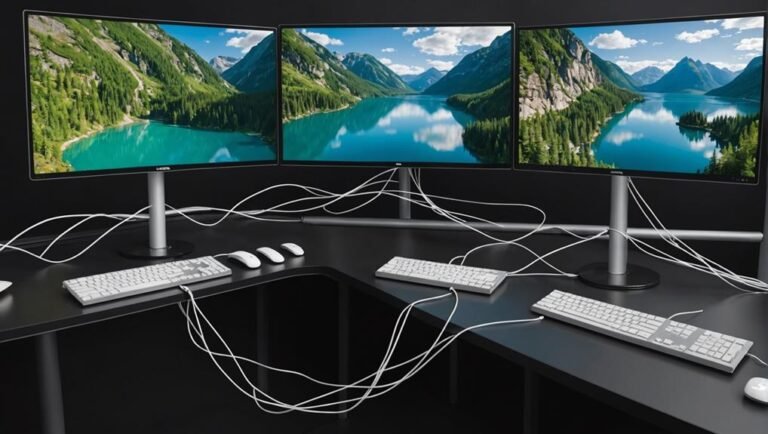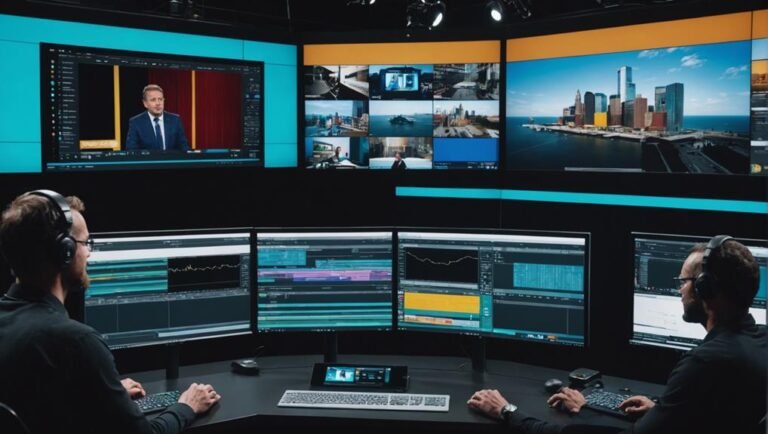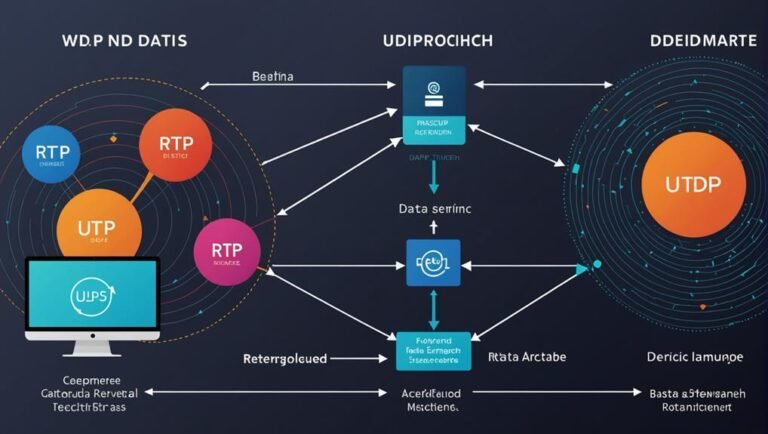When comparing 1080P and 4MP CCTV cameras, you’ll notice that 4MP cameras offer higher resolution at 2560×1440 pixels, providing superior detail and clearer images. This allows for better zoom capability and improved identification of facial features, license plates, and small objects. However, 4MP cameras require more storage and bandwidth, which could mean investing in larger hard drives or advanced compression techniques. While 1080P cameras are initially cheaper and require less storage, 4MP cameras give a significant boost in image quality. Balancing these factors is essential for the best security solution. For more insights into installation and costs, keep exploring.
Resolution Comparison
When comparing 1080P and 4MP CCTV cameras, the most significant difference lies in their resolution. You’re looking for the best way to monitor your space, and understanding resolution is key. A 1080P camera provides a resolution of 1920×1080 pixels, while a 4MP camera offers 2560×1440 pixels. This means the 4MP camera captures more detail, giving you a clearer and more thorough view of your surroundings.
Imagine having the power to see more details in your footage. With a 4MP camera, you’re not just getting more pixels, but also more freedom to zoom in and investigate without losing clarity. This can be essential for identifying faces, license plates, or other important details that might be crucial for security.
You don’t want to be tied down by limitations. By opting for a higher resolution, you’re ensuring that your surveillance system can provide the best possible protection. It’s about having the freedom to see everything that matters. So, if you value the ability to capture and review every detail, going for a 4MP camera over a 1080P one might be the right choice for you.
Image Clarity
In addition to higher resolution, 4MP cameras provide superior image clarity, making it easier to identify fine details. When you’re securing your space, every little detail counts. With 4MP cameras, you’re not just capturing a scene; you’re capturing the essence of what’s happening in that scene. Think about the clarity in facial features, license plates, and even small objects that matter in critical situations.
Here’s why 4MP cameras excel in image clarity:
- Enhanced Detail Recognition: You’ll notice distinct features like facial expressions and tattoos, which can be vital for identification purposes.
- Better Low-Light Performance: These cameras often handle low-light conditions more effectively, ensuring you don’t miss anything important when lighting is poor.
- Improved Zoom Capabilities: When you zoom in on an image from a 4MP camera, the quality remains high, allowing you to scrutinize finer details without the image becoming pixelated.
You want the freedom to feel secure and informed. With 4MP cameras, you’re empowered to see the full picture, not just a blurry representation. This clarity provides peace of mind, knowing you can rely on your CCTV system to deliver the detailed visuals you need.
Storage Requirements
Given the storage requirements for your CCTV system, it is crucial to understand that higher resolution footage, such as that from 4MP cameras, demands more storage space than 1080P footage. If you’re aiming for the crisp, detailed images that 4MP provides, you’ll need to allocate significantly more digital storage. A 4MP camera captures more data per frame compared to a 1080P camera, leading to larger file sizes.
To break it down, a 4MP camera generates approximately 2.5 times the data of a 1080P camera. If you’re recording 24/7, the storage requirements can add up quickly. You’ll need to plan for a larger hard drive or cloud storage solution to handle the increased data. Alternatively, you could adjust the frame rate or use motion detection to record only when activity is detected, thereby saving valuable space.
Make sure you’re aware of the trade-offs. While you gain superior video quality, the need for more storage could mean higher costs and more frequent maintenance. Balancing your desire for high-quality video with available storage resources is key to maintaining an efficient CCTV system.
Bandwidth Usage
Monitoring your bandwidth usage is crucial when choosing between 1080P and 4MP CCTV cameras. You want to make sure you’re not bogging down your network, and understanding the differences in bandwidth consumption is key. A 1080P camera generally uses less bandwidth than a 4MP camera, but both have their own sets of advantages depending on your needs.
To help you make an informed decision, consider these factors:
- Resolution Impact: A 4MP camera offers higher resolution, which means clearer images but also higher bandwidth usage compared to a 1080P camera. If your priority is crystal-clear footage, be prepared for the increased data load.
- Compression Techniques: Modern CCTV systems often use compression methods like H.264 or H.265 to manage bandwidth. Understanding how these techniques work can help you optimize your network without sacrificing too much quality.
- Network Capacity: Assess your current network’s capacity. If you’ve got a robust network with plenty of bandwidth, a 4MP camera might be feasible. If not, sticking with 1080P could save you from potential network issues.
Balancing these factors can help you achieve the freedom of a secure, efficient surveillance system without overburdening your network.
Cost Analysis
When evaluating the cost implications between 1080P and 4MP CCTV cameras, you’ll find that upfront expenses and long-term investments play significant roles in your decision-making process. Initially, 1080P cameras tend to be more budget-friendly, offering a lower entry cost that appeals to those looking to set up a basic security system without breaking the bank. In contrast, 4MP cameras, while more expensive, provide higher resolution and better image quality, which might justify the extra expense depending on your needs.
However, don’t just consider the initial purchase price. Think about long-term costs too. Higher resolution cameras like the 4MP models often require more storage capacity and possibly more robust network infrastructure. This can lead to increased costs for storage solutions and potentially higher internet service fees. On the other hand, 1080P cameras generally consume less storage and bandwidth, which can translate to lower ongoing costs.
You should also factor in the lifespan and potential need for upgrades. Investing in 4MP might mean less frequent upgrades in the future, saving you money over time. Balancing these elements will help you make an informed choice that aligns with your financial freedom and security needs.
Installation Considerations
Installing 1080P and 4MP CCTV cameras requires careful planning to guarantee peak performance and coverage. You need to think about where you’ll place these cameras for best visibility and minimal blind spots. Here are some key considerations to keep in mind:
- Camera Placement: Make sure your cameras are positioned to cover all critical areas, such as entry points, hallways, and common spaces. Don’t forget to take into account the height and angle to capture the most advantageous field of view.
- Lighting Conditions: Different lighting conditions can impact the quality of your footage. Ensure to factor in varying light sources like sunlight, streetlights, and indoor lighting to avoid glare and shadows.
- Wiring and Connectivity: Plan your wiring routes to maintain a clean and efficient setup. Whether you’re using wired or wireless systems, ensure a stable connection to your recording device or network.
Best Use Cases
After considering installation details, it’s important to understand the best use cases for 1080P and 4MP CCTV cameras to maximize their effectiveness. For everyday surveillance needs, like monitoring your home’s entry points or keeping an eye on your driveway, 1080P cameras do the job well. They offer clear enough resolution to identify faces and license plates at close range, making them a solid option for general security without breaking the bank.
However, if you’re looking for superior clarity and wider coverage, 4MP cameras are your go-to. They excel in areas where capturing fine details is essential, like in retail stores to monitor customer interactions or in office spaces to promote employee safety. With a higher resolution, 4MP cameras can cover larger areas without sacrificing image quality, making them ideal for expansive properties.
Frequently Asked Questions
What Are the Typical Weatherproof Ratings for P and 4MP CCTV Cameras?
When checking weatherproof ratings, you’ll usually find IP66 or IP67 for most CCTV cameras. These ratings guarantee your cameras resist dust and water, so you can confidently place them outdoors without worrying about the elements.
How Do P and 4MP CCTV Cameras Handle Low Light Conditions?
Imagine walking along a moonlit trail. Both cameras, P and 4MP, handle low light well. P shines brighter with advanced sensitivity, while 4MP offers decent clarity. You’ll capture details even when the sun’s long gone.
Are P and 4MP CCTV Cameras Compatible With Most Existing Security Systems?
Yes, they’re generally compatible with most existing security systems. You’ll need to check the specific requirements of your setup, but both usually integrate well, offering you flexibility and the freedom to upgrade without hassle.
What Is the Average Lifespan of P and 4MP CCTV Cameras?
You’ll find that both P and 4MP CCTV cameras generally last around 5-7 years with proper maintenance. Regular cleaning and avoiding extreme weather conditions can help extend their lifespan, letting you enjoy hassle-free security.
Do P and 4MP CCTV Cameras Support Remote Access and Monitoring?
Imagine a watchful eagle soaring high, seeing everything below. Yes, both p and 4mp CCTV cameras support remote access and monitoring, giving you the freedom to keep an eye on your world from anywhere.



